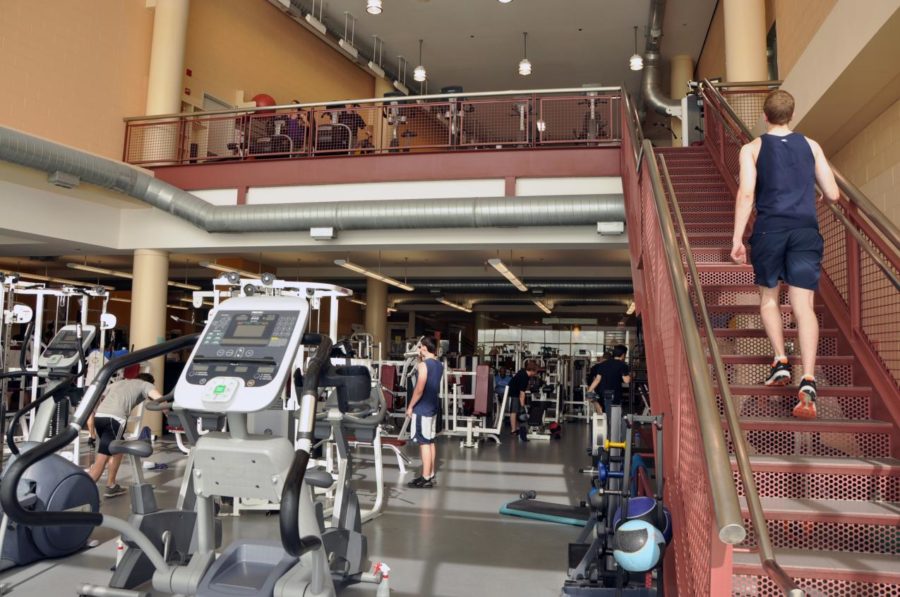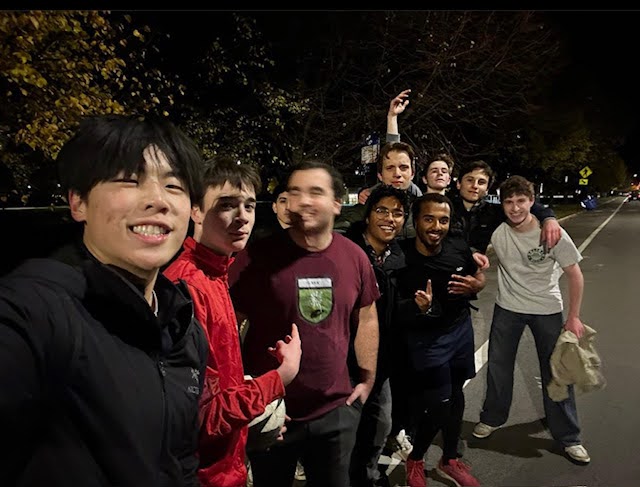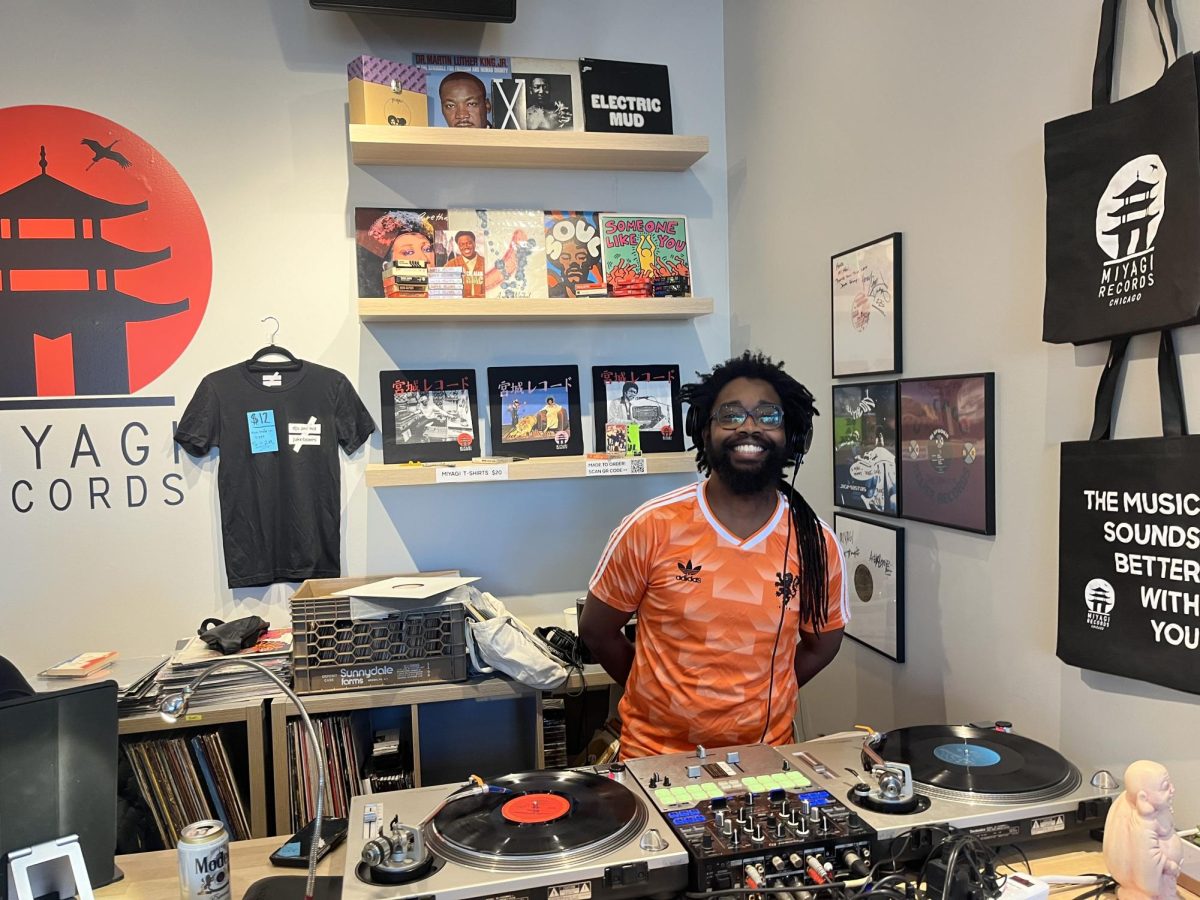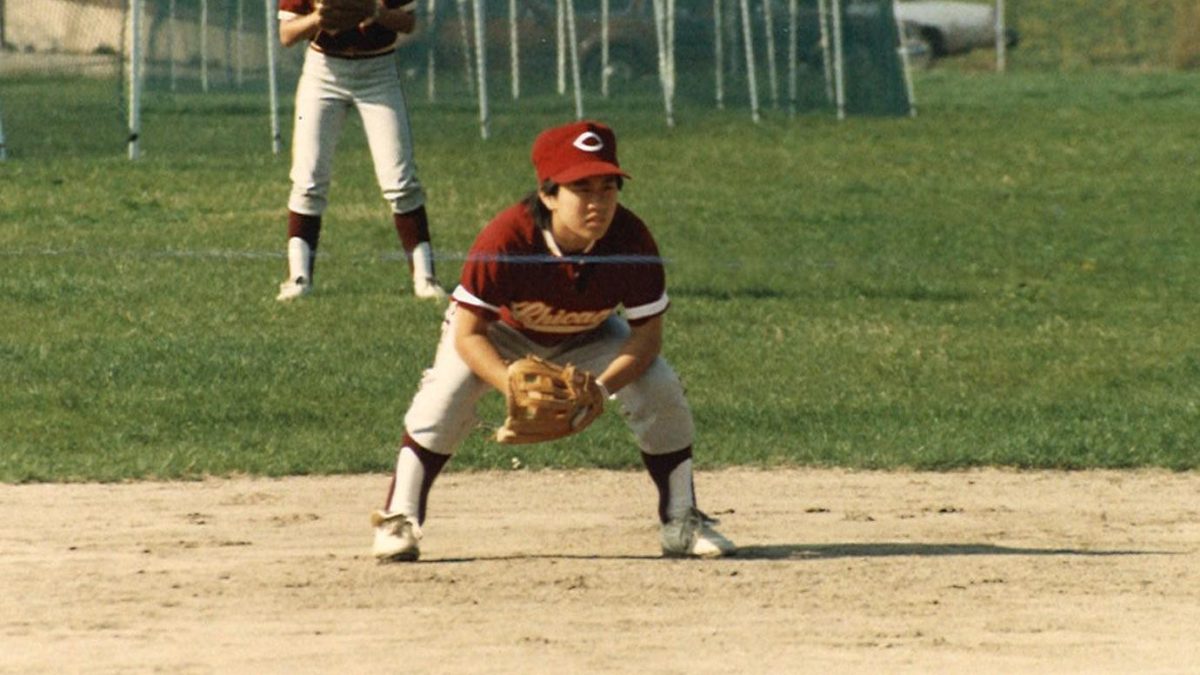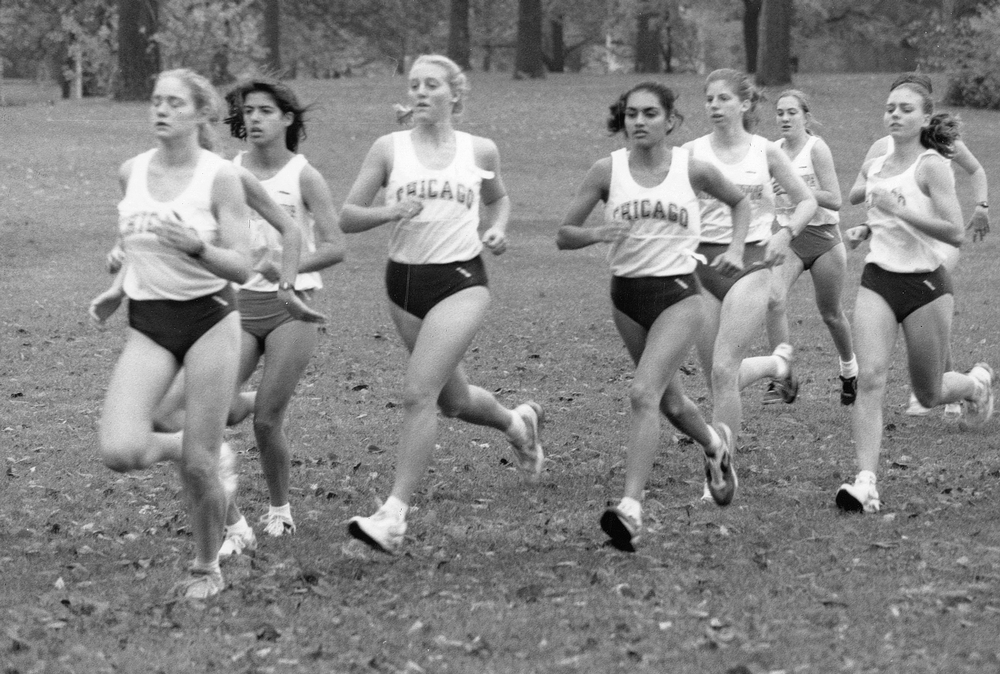If this year’s crop of first-year athletes has learned anything from fourth-year captains Teage O’Connor and Pat Hogan, it’s to never underestimate the power of a good example. Men’s cross country and track owes a large chunk of its success during the 2005–2006 season to the quiet leadership of its two top runners.
O’Connor and Hogan, along with classmate and co-captain Nick Juravich, are credited with uniting and leading the 2005 men’s cross country team, which ended its season ninth in the nation. The duo’s persistence, collaboration, and diligence during training and competition created the kind of atmosphere that spawns championship-worthy squads. Their efforts bolstered the men’s performance during workouts and meets and united a section of the track and cross country teams that was experiencing its share of cohesion and motivation problems.
“The men’s cross country team had gone to nationals during the 2004 season,” Juravich explained. “So a lot of the guys who’d been on a national-caliber squad last year took that for granted and initially assumed they would be going to NCAAs again. But then in the beginning of September when it looked like that might not happen, Pat and Teage really had to step up and encourage everyone and keep the atmosphere positive.”
With an infectious and genuine belief in the importance of teamwork, Hogan and O’Connor encouraged the same tone in practice that had appealed to them during the previous three years. The Maroons benefited from the duo’s corresponding abilities and parallel interests. O’Connor and Hogan were both somewhat reluctant runners in high school and could be called quintessential Division III athletes. O’Connor began running competitively when he was six in elementary school meets but wasn’t a terribly serious runner in high school. Hogan didn’t compete in any distance events until the 10th grade.
“I went out for my first season of cross country mainly because a friend of mine on the team wouldn’t stop whining about it,” Hogan said. “I kind of loathed running until my senior year, and always saw myself as a swimmer first and a runner second throughout high school.”
Chicago’s size, academic focus, and some wooing from head coach Chris Hall brought the duo to Chicago in August of 2002 for cross country preseason where O’Connor and Hogan found a very comfortable niche.
“Preseason before my first year was probably one of the best months of my life,” O’Connor said. “The seniors my first year were amazing and established a great team atmosphere. I think the seniors this year have tried to do the same. We’re all really close and I think that, in the same way that it did my first year, that unity trickles down and encourages everyone else to bond.”
Both athletes had the same training needs coming out of their respective high school careers, giving birth to a partnership that spawned two of Chicago’s more productive athletic careers. O’Connor and Hogan have taken all-region and all-conference honors and earned multiple opportunities to run at nationals for cross country and track.
Hogan and O’Connor are appreciably nonchalant about the copious awards and recognition they’ve accrued during their four years at Chicago. Rather than highlight their myriad achievements, both O’Connor and Hogan tend to skip any bravado and emphasize the pleasure they get from long runs, consistently improving and forming tight bonds with teammates.
As training partners, they’ve been able to improve simply by running together, pushing one another to work harder and improve. With a feeling of responsibility for the quality of a teammate, and eventually an entire team’s workout, Hogan and O’Connor promoted the team aspect of what’s regularly considered an individual sport. Hogan and O’Connor did workouts separately during the 2005 outdoor season while O’Connor studied in Greece, but the duo reunited and led the men’s cross country team at the 2005 national championships.
“I’d never had a solid training partner in high school, and I can’t tell you what a difference it made coming here and having someone to help pull me through workouts and races,” Hogan said. “I know I couldn’t have had nearly the same degree of success without Teage to work alongside.”
Their routine was marred during the 2006 indoor track and field season when Hogan was sidelined with an injury. He eventually bounced back toward the end of outdoor competition, scoring eighth place in the 10k at the fiercely competitive Dr. Keeler Invite. With his versatile approach to training, O’Connor was able to maintain a high level of performance in practice and competition. He met the NCAA provisional standard in the 3,000-meter steeplechase, the event in which he placed 13th at the 2004 National Championships. Hogan’s absence, however, was palpable.
“Seeing him on the elliptical trainer when the rest of us were going out for a run,” O’Connor said, shaking his head at the memory, “it was kind of heartbreaking.”
For Hogan, being relegated to the cardio rotunda took more of a toll on his mental well being than on his athletic welfare.
“It was especially rough because running is my usual outlet and having to deal with the stress of a B.A. and preparing for next year without that was harder than it should have been,” Hogan said.
But Hogan led by example yet again. Monotonous pool workouts eventually paid off when he was able to rejoin his running mates in Washington Park to train on terra firma and blow off some B.A.-induced steam.
Outside of athletics, the two environmental studies majors have devoted a considerable amount of time and energy to activism and education. O’Connor, who worked for the Neighborhood Schools Program, will head to Western Massachusetts to work as an instructor for a program giving disadvantaged children from New York City a chance to get closer to nature. Hogan, who taught in an after school environmental awareness program during his tenure at Chicago, will apply what he learned in classrooms of all kinds during a two-year stint as an educator in the Bay Area for the Teach for America Program.
Their co-captain and teammates have expressed gratitude several times over for the chance to train and compete with a team led by excellent athletes. Hogan and O’Connor are grateful for the four years they’ve spent becoming better runners and close friends. Although the men’s team will lose a major cohesive influence on June 12, Hogan is confident the positive mood he and his co-captain worked to create during the men’s team practices will stick around after they’re gone.
“I do think the team will be in good hands in years to come,” Hogan said. “I really thought we got a great group of first-years this cross-country season, so I’m hoping to scan the results pages over the next few years and see that we’re still ahead of North Central.”


